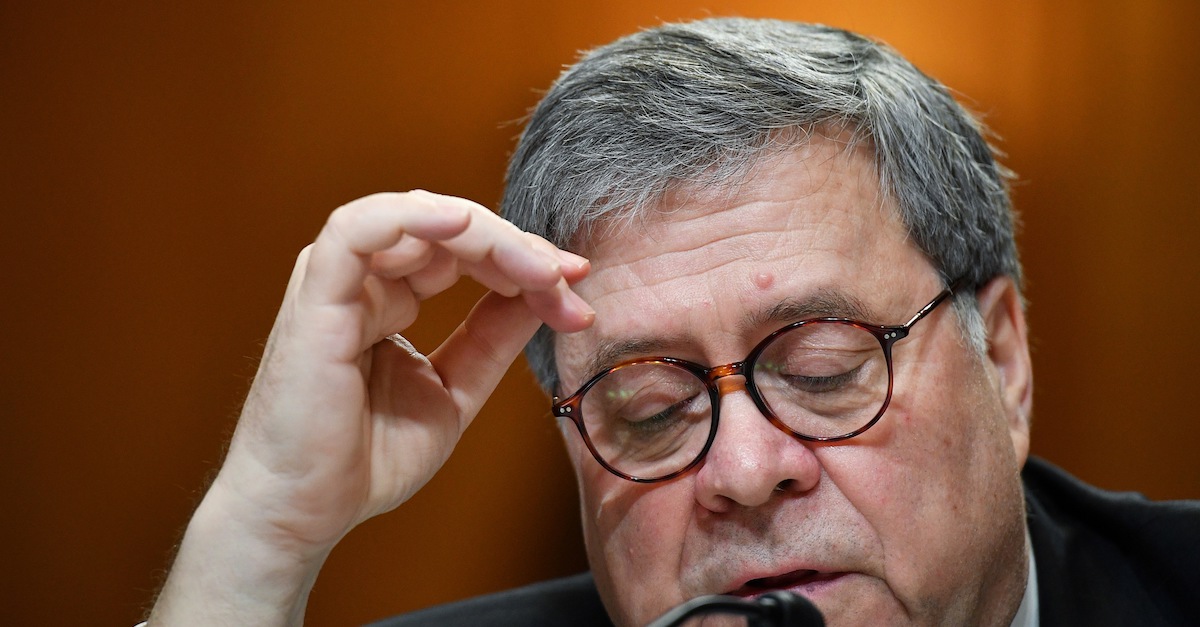
The House Oversight Committee sued Attorney General William Barr and Secretary of Commerce Wilbur Ross on Wednesday for “unlawful refusals to comply with duly authorized, issued, and served Committee subpoenas.”
The subpoenas sought records related to the Trump administration’s attempt to add a citizenship question to the 2020 Census.
As you may know, the case for adding the question to the 2020 Census reached the Supreme Court. The high court eventually blocked the addition of the question and told the administration to come up with a new rationale. After a couple of weeks of intrigue and uncertainty, the administration abandoned the effort and examined other options.
Chief Justice John Roberts explained that administration’s stated rationale for adding the question “seem[ed] to have been contrived”:
Altogether, the evidence tells a story that does not match the [Commerce] Secretary’s explanation for his decision. Unlike a typical case in which an agency may have both stated and unstated reasons for a decision, here the VRA [Voting Rights Act] enforcement rationale—the sole stated reason—seems to have been contrived. The reasoned explanation requirement of administrative law is meant to ensure that agencies offer genuine justifications for important decisions, reasons that can be scrutinized by courts and the interested public. The explanation provided here was more of a distraction. In these unusual circumstances, the District Court was warranted in remanding to the agency.
The Court also said there was a “significant mismatch between the decision the [Commerce] Secretary made and the rationale he provided.” The Trump administration claimed that the question was needed in order to enforce the Voting Rights Act, but opponents of the question have long argued something insidious was afoot.
In a motion recently seeking sanctions against the administration, attorneys representing the New York Immigration Coalition (NYIC) wrote that the recently released evidence from the Oversight Committee showed that numerous members of the administration withheld relevant documents and provided misleading testimony about the late Thomas Hofeller’s role in the attempt to add the citizenship question to the census.
The administration denied its decision to add a citizenship question was intended to give Republicans an electoral advantage, even after Hofeller’s estate released thousands of documents pertaining to his gerrymandering work and communications with administration officials. In June, attorneys for DOJ dismissed the allegations that Hofeller was involved in the administration’s census decision as a “conspiracy theory.”
But according to NYIC’s filing, the evidence contained in the Oversight Committee memo illustrated that administration officials provided false or misleading deposition testimony to the Court while under oath to conceal Hofeller’s involvement. The filing specifically noted the depositions of Mark Neuman, an advisor to Secretary Ross, Senior DOJ official John Gore, and Commerce Department general counsel Peter Davidson.
“The basic facts are simple: Neuman incorporated verbatim the [Voting Rights Act] enforcement rationale from a 2017 document Hofeller authored into an initial draft of DOJ’s letter requesting the citizenship question. Defendants sought to brush off evidence of Hofeller’s role in adding a citizenship question to the census as a ‘conspiracy theory,’ but the newly-released documents confirm that Hofeller played an even bigger part in Defendants’ scheme than previously was understood,” the filing said. “And these new documents provide further proof that Defendants improperly withheld pertinent information from Plaintiffs and the Court.”
House Oversight sues Barr, Ross by Law&Crime on Scribd
Jerry Lambe contributed to this report.
[Image via Mandel Ngan/AFP/Getty Images]